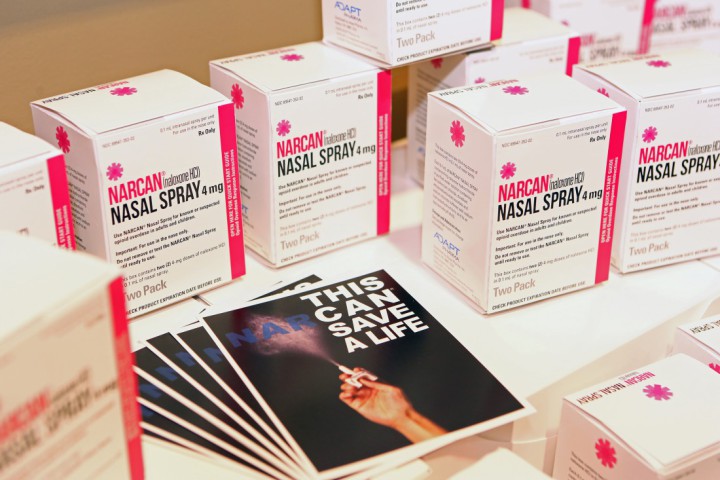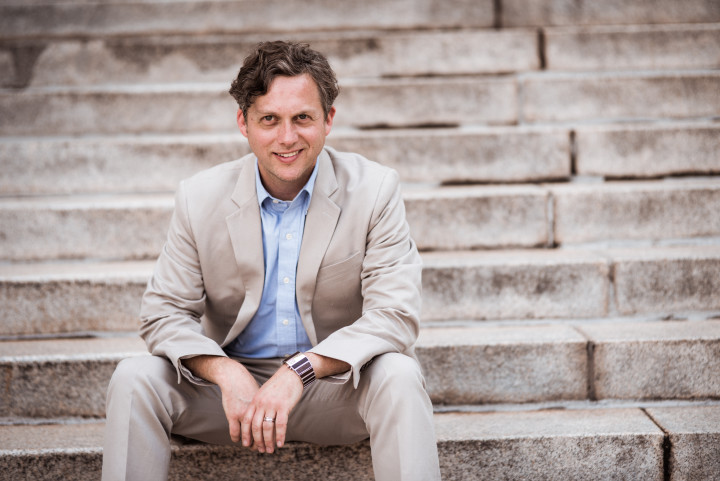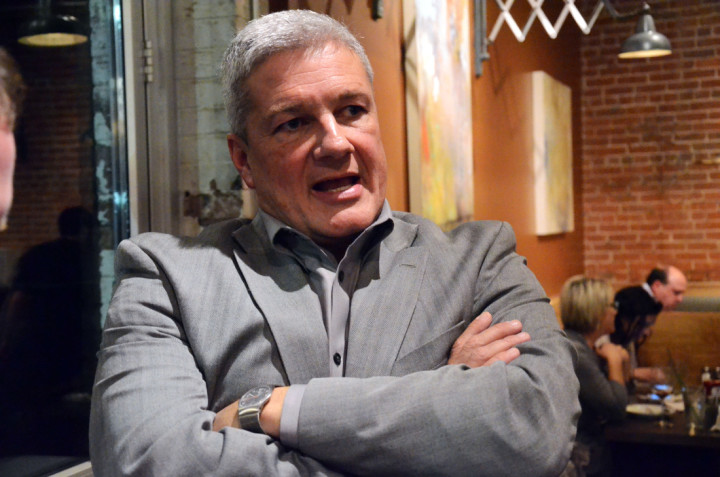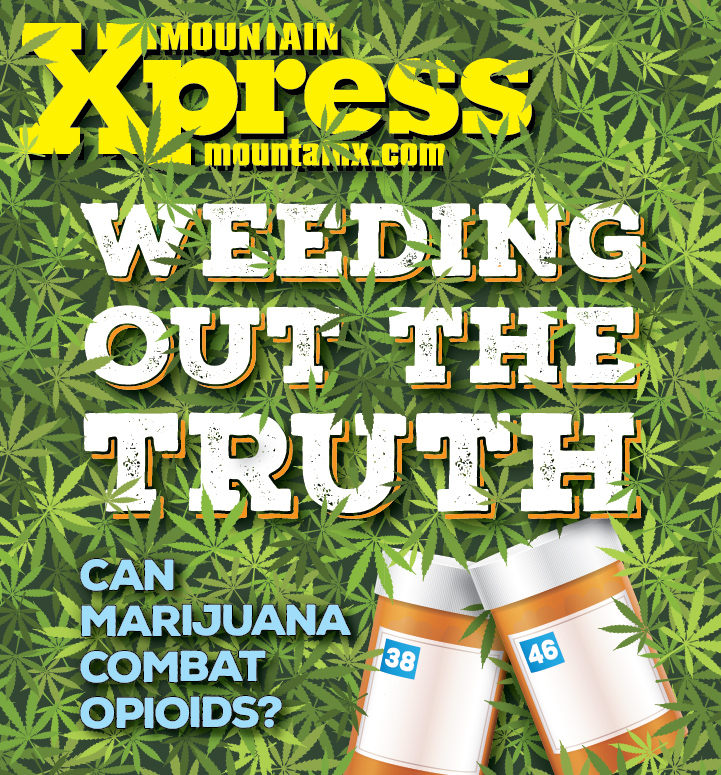Attitudes toward marijuana are in major flux these days, and some local lawmakers say trading plants for pills is a prescription for fighting the raging opioid epidemic. Others worry that medical marijuana spells trouble of a different sort and is really just a smoke screen enabling full-blown recreational marijuana legalization to take root. Either way, the chatter about marijuana is getting louder as more and more states opt for some form of legalization.
Evidence of the plant’s potential for treating various medical conditions is growing, and many also see it as an economic windfall that’s ripe for harvest.
At their Feb. 17 retreat, the Buncombe County commissioners identified combating opioid abuse and increasing teacher salary supplements as top priorities. But is legal marijuana a viable strategy for achieving those goals, or merely smoke and mirrors?
High approval
Even as marijuana research continues to proliferate, public attitudes about its use and potential medical applications have undergone a seismic shift. In a 2017 CBS poll, 88 percent of respondents favored approving medical marijuana and 61 percent thought recreational use should be legal. Another study, conducted this year by Yahoo News and The Marist Poll, found that 83 percent of participants supported legalizing medical marijuana and 49 percent favored ending the ban on recreational use.
A majority of respondents in the latter study (67 percent) also said prescription “opioids such as Vicodin or OxyContin” pose a bigger health risk than medical marijuana.
And in a 2016 survey of North Carolina voters by Public Policy Polling, a Raleigh-based agency with a decidedly Democratic tilt, 74 percent of respondents said doctors should be able to prescribe marijuana. The poll broke down participants’ political affiliations as follows: 40 percent Democrat, 33 percent Republican and 27 percent unaffiliated or other. According to the state Board of Elections, registered voters in North Carolina were 39 percent Democrat, 30 percent Republican and 30 percent unaffiliated or other as of last month.
Marijuana is already legal in some form in 29 states plus the District of Columbia; three Southeastern states — Arkansas, Florida and West Virginia — now allow medicinal use. South Carolina’s recent attempt to approve it fell short, but proponents did manage to convert key Republican lawmakers, laying the groundwork for a bipartisan push next year, observers say.
Rolling up support
Here in North Carolina, a number of WNC lawmakers, all Democrats, have co-sponsored a bill that would allow doctors to prescribe marijuana.
“It seems to me to be long overdue, since there is reputable medical evidence to show its effectiveness in treating some illnesses and other medical conditions,” says Rep. Susan Fisher, whose district covers most of Asheville. She wants the Legislature to approve a referendum and let the people decide. “It is not clear to me why people would be opposed to its medical use,” says Fisher, though she notes that “people associate marijuana with other more dangerously addictive substances.”
Rep. John Ager, who’s co-sponsoring the legislation, says, “I had a close friend with colon cancer that had much of her pain mitigated with marijuana before her untimely death. The opioid epidemic is ravaging our state, and this would be a great reason to legalize medical marijuana.” Ager represents northeastern Buncombe County.
“One advantage we have in North Carolina is that we already have a system for controlling the sale of alcohol through state-run ABC stores. Perhaps sale of marijuana through that venue would provide some safety, not to mention revenue for the state,” he notes. “Colorado is funding a lot of school construction with marijuana revenue, and that is a need we have here as well.”
Approval, says Ager, isn’t likely to come while Republicans control the General Assembly.
One Republican who’s on the fence is Rep. Chuck McGrady, whose district includes northern Henderson County. “I haven’t taken any position on legalizing medicinal marijuana,” says McGrady, adding that while he’s heard some support for legalization from constituents, “to my knowledge, both the Henderson County district attorney and the sheriff oppose the bill.” McGrady expects that at some point the General Assembly will consider the idea, “but I don’t think it has traction now.”
And in any case, don’t expect North Carolina to be a leader in this arena, notes Chris Cooper, who heads Western Carolina University’s political science and public affairs department. “Medicinal marijuana is a classic case of ‘morality policy’ — policies that are governed more by values than by rational cost-and-benefit calculations,” he says. And on such issues, “Public opinion is notoriously stubborn. Just like with the lottery, I expect that legislators will wait to see what happens in other Southern states. Heck, we didn’t even allow beer with more than 6 percent until 2005.”
Thus, it could be years or even decades before legalization happens here, Cooper predicts. And when medical marijuana has been approved in other states, he points out, “It has been not at the hands of legislative action but through direct vote by the people. If it passes in North Carolina, it’s likely to be through a referendum where legislators can escape accountability.”

High stakes
“The aggressive marketing and liberal prescribing of opioids over the past decades have created an epidemic of opioid and heroin addiction,” says Democratic Rep. Brian Turner, another co-sponsor whose district includes the westernmost part of Buncombe County. “Non-narcotic pain management options such as physical therapy, chiropractic care and medical marijuana can help prevent opioid addictions and a downward spiral into heroin addiction.”
The shift in attitudes toward marijuana and concurrent explosion of opioid abuse have left citizens and policymakers alike scratching their heads over an apparent paradox. At the federal level, marijuana remains illegal: The Drug Enforcement Administration classifies it as a Schedule I controlled substance, meaning it’s believed to have a high potential for abuse, no accepted medicinal value and is generally considered unsafe. Yet the DEA lists marijuana as a hallucinogen, not a narcotic or “drug of concern,” and the agency’s latest fact sheet states that there are no recorded deaths directly attributed to a marijuana overdose. The increasing disconnect between state and federal laws has created an administrative gray area.
Meanwhile, according to the Centers for Disease Control and Prevention, more than 33,000 people nationwide died from overdoses of prescription opioids or heroin in 2015, the highest number the CDC has ever recorded. In Buncombe County alone, the first two months of 2017 have seen 150 opioid-related overdose calls and 20 deaths. And last year, emergency response personnel administered Narcan (an opioid overdose reversal drug) 159 times, compared with 44 times in 2011.
Yet as more states approve pro-marijuana measures, a growing number of reports and studies have highlighted both the pros and cons of legalization.
A 2017 study published in the journal Drug and Alcohol Dependence reported a 23 percent decrease in opioid dependence and a 13 percent drop in opioid-related overdoses in states with legal marijuana. Another study conducted by researchers at the University of British Columbia this year found that 63 percent of patients suffering from chronic pain chose medicinal marijuana over opioids due to concerns about addiction and potential side effects.
“I agree with those studies,” says Kim Hall, an assistant professor in the School of Health Sciences at Western Carolina University. “It can be argued that legalizing marijuana may not curb overall drug addiction rates, but the idea of legal marijuana as a ‘safe’ alternative to opioids is gaining traction.”
Nonetheless, she continues, marijuana still carries a stigma. “Opioids are not illegal with a valid prescription, and as a result, they tend to be more acceptable in society. Even if medicinal marijuana were to be legalized in North Carolina, I think it would be challenging to change the historical perceptions of health risks associated with marijuana versus those of opioids. Legalizing medical marijuana is only the first step in combating the opioid epidemic. Educating patients and the public is essential to ensure that the health risks associated with either treatment are minimized.”
And while Hall favors letting patients choose, she’s not convinced that marijuana alone is necessarily the only way to go. “There is some evidence to suggest that a combination of medicinal marijuana and opioid treatment could reduce the risk of opioid abuse as the two treatments would act synergistically, thereby reducing the opioid dose necessary to effectively manage pain.”

High time
In 2009, Asheville attorney Rod Kight was receiving treatment for testicular cancer, which left him “feeling achy, nauseous and all the ways you feel after a chemotherapy treatment.”
One day, as friends and family cycled through his home helping with various needs, he smelled marijuana coming from another room. “I had been in bed all day and thought it couldn’t hurt. I didn’t believe in medical marijuana: I thought it was a Trojan horse for recreational marijuana,” he explains.
“The results were fairly immediate and kind of blew me away. I wasn’t expecting any results, but my pain subsided and my nausea went completely away,” Kight reveals, adding that he immediately took advantage of his newfound appetite and raided the fridge. “I wanted Indian food. I ate, felt better and hung out all night.
“From that point forward I used [marijuana] throughout my entire chemotherapy, and it enabled me to significantly reduce the amount of prescription medications I was using.”
Besides helping him persevere through his battle with cancer, notes Kight, “it also helped change the minds of some people I was around. I think watching the relief I experienced helped people get on board and see it as a medicine.”
Rockingham resident Perry Parks had a similar experience. After 29 years of military service, the Vietnam War veteran retired with post-traumatic stress disorder and a herniated disc in his back that left him in pain and on pills. Marijuana, he says, helped with all of those issues. “People told me I could use cannabis for PTSD and pain,” he recalls. “I really didn’t believe it, but I started smoking it and I realized, after a short period of time, I didn’t need all these other medications. I was fed up with the sleeping and pain pills.”
Based on his experience, says Parks, he decided to join the fight for legalizing medical marijuana in North Carolina. “If I can treat my PTSD and everything else by smoking a joint instead of a handful of pills that destroy my vital organs, that’s something worth making a fuss over,” he maintains.
Parks believes vets are getting “screwed” by the Department of Veterans Affairs’ policy on medicinal marijuana. “If you live in a state with medical marijuana and you go to the VA clinic, there’s a directory that tells you, as long as you comply with state laws, you may use it for various conditions,” he explains. “If you don’t live in a state with medical marijuana, you cannot use it. In fact, if you’re caught using marijuana in North Carolina, you’re denied further care with opioid drugs until you can provide a clean urine sample. They cut the veterans off. It’s outrageous.”
Asked about the local VA Medical Center’s marijuana policies, public affairs officer Armenthis Lester explained that since the drug is illegal under federal law, VA physicians can neither prescribe nor conduct research with it. “However, patients who participate in a non-VA marijuana program will not be denied access to care through VA clinical programs but should be assessed for misuse, adverse effects and withdrawal,” she explained. “Decisions to modify treatment plans in those situations need to be made by individual providers in partnership with their patients.”
High risk?
And despite its apparent promise, medical marijuana also carries risks. “I’m not for drugs of any kind,” says Buncombe County Commissioner Mike Fryar. “I’m not interested in marijuana to replace opioids,” he says. “I don’t care about studies: It’s still a drug that’s addictive.” And though Fryar says he doesn’t want to see people suffer, he thinks marijuana will end up like methadone, “a drug to overcome another drug.”
And while marijuana proponents are quick to dismiss the drug’s downside, notes Hall, “Concerns associated with cannabis addiction are as well-founded as those for opioid addiction. Recent data suggest that 30 percent of those who use marijuana have some level of marijuana use disorder.” Dependence, she explains, “develops when the brain reduces the production of, and sensitivity to, its own endocannabinoid neurotransmitters to adapt to increased drug amounts.” Another issue, continues Hall, “is the increasing average THC content over the past 40 to 50 years, which may raise concern that the addictive consequences of marijuana use could be worse than previously thought.”
And addiction aside, Hall also points out that “the long-term health effects of exposure, especially in children and adolescents, is largely unknown.”
Until people reach their mid-20s, notes Staci Gruber, an associate professor at Harvard Medical School who directs a marijuana research program, the brain “is still under construction,” and some studies have suggested that regular recreational marijuana use, particularly among teens, can negatively affect certain cognitive abilities. But Gruber also stresses that there are significant differences between recreational and medicinal use, and between the apparent effects at different ages.

The high road
Buncombe County Sheriff Van Duncan expresses some ambivalence about the drug. “If you are talking specifically do I think marijuana could be helpful for some diseases and be less harmful than some synthetics being used for treatment, absolutely I do,” he says.
But Duncan, too, worries about youth marijuana use. Young people, he points out, could become habitual users “while hiding it from family and friends much easier than concealing a drinking problem.” And in addition to the research about brain development, continues Duncan, he’s concerned that early exposure to marijuana could lead to other drug use. “Most substance abuse counselors I talk to got in a bad spot by smoking marijuana very early on; I’m talking about before the age of 16.”
Another big issue, says the sheriff, is the prospect of more people driving while impaired — particularly since there’s no reliable way to tell if a driver is stoned. “I don’t think anybody argues that you’re going to have more folks on the road under the influence of THC,” notes Duncan. Early data from Colorado suggests that this might not be an issue, but because legalization is such a recent phenomenon, there’s been no longitudinal research as yet. And since THC can linger in the body for days or even weeks, it’s hard to prove that the person was intoxicated while driving.
Hall echoes that concern. “The risk of vehicle crashes significantly increases if the driver is under the influence of marijuana,” she says. “Judgment, motor coordination and reaction time have all been shown to be impaired, with the level of impairment directly related to the concentration of THC in the blood.”
Despite his reservations, however, Duncan sees the handwriting on the wall. Legalization, he notes, “brings a lot of issues and a lot of trouble. Is it worse than alcohol? I don’t know that I can say that. Is it inevitable? Probably, simply because of the money involved.”
Cashed out
After being surrounded by gambling-friendly states, economic arguments loomed large in North Carolina’s ultimately approving a lottery. But is marijuana legalization really the economic windfall that proponents predict?
Nationwide, the marijuana industry rolled up a total of $5.4 billion in sales in 2015, a 17.4 percent increase from the previous year, according to CNBC. And North Carolina’s proposed legislation estimates that within four years, legalization would generate $250 million in annual tax revenue.
According to data from the state Department of Revenue, North Carolina hauled in just over $7.5 billion in total tax revenues during the 2015-16 fiscal year. If the bill’s projections are correct, legalization would boost gross collections by about 3.3 percent.
To put that number in perspective, the state’s furniture industry brought in nearly $209 million in the same period. And while adding a comparable amount of new revenue would certainly be a welcome cash infusion, it might not be a complete game-changer. Of course, that figure doesn’t take into account either the industry’s rapid year-to-year growth or the potential for job creation and secondary economic impacts.
One key question is how the money would be divided among the state and municipalities. And even if the proceeds really were dedicated to education, that doesn’t necessarily mean an increase in overall education spending, notes Chris Bell, chair of UNC Asheville’s economics department. “Case in point: Our ‘education’ lottery. Do you really think our state lottery has increased education spending beyond what would have been spent otherwise? Even if the extra revenue is earmarked for a particular spending category, there’s no reason to believe that, in the long run, spending in that category will actually rise by the amount of the extra revenue,” he explains.
“Through the political process, the Legislature decides how much to spend in each category. If $250 million is available out of a pot earmarked for education, that means $250 million less needs to be spent out of general funds to support the legislatively determined amount spent on education. The extra $250 million will be spent somewhere — probably spread around to a lot of other areas, including a little for education — but most of it won’t go to increased spending in the earmarked category.”
So, from that standpoint, how much medical marijuana would help pad local teacher supplements is highly debatable. But it’s always a possibility, notes Rep. Turner, depending on the overall level of political support for education in the General Assembly. “Of course, funding for public education would always be at the top of my list for any additional money that the state has,” he says.

Pipe dreams
And regardless of where people stand on the issue, most of the folks Xpress spoke with believe legalizing medical marijuana is really only a question of when, not if.
Parks, the Vietnam veteran, isn’t holding his breath, however. “I think it will be legal nationally before here,” he predicts.
Even the legislators co-sponsoring the current bill stress that patience is key, voicing the hope that positive data from additional studies will gain converts to the cause.
“I understand the idea that people would be personally opposed to its use,” Rep. Fisher acknowledges. “However, if the medical and scientific communities have determined its effective use for disease treatment and control, it would only be prescribed for those purposes, and individuals are free to refuse treatment in the form of medicinal marijuana if they’re morally opposed to it.”
Turner, meanwhile, sounds a similar note, saying, “As people gain understanding about the efficacy of marijuana as an alternative medical treatment, I think it becomes more and more clear that the moral difference between prescribing marijuana and prescribing an opioid pain medication is a false equivalency. If we can provide the same health benefits through natural alternatives that have not been shown to have the same addictive properties, we should do that.”
But Turner also emphasizes that oversight has to be part of the package. “Like all other pharmaceuticals, it needs to be prescribed by a physician who is overseeing treatment, dispensed by a pharmacist and tracked to ensure that we’re preventing abuse.”
And though Sheriff Duncan believes medical marijuana is inevitable, he also says it’s the “foot in the door” for legalizing recreational use, which he staunchly opposes. Before North Carolina opts for any form of legalization, he maintains, the state “really needs to look at some of the unintended social costs that Colorado is beginning to see and starting to track.”
Legalization, adds Duncan, also opens up a can of worms in the workplace. “Just because it becomes legal, you can’t smoke and come to work,” he points out, and employers might have difficulty adjusting to the new policy.
Still, Kight, whose cancer is now in remission, wants more people to know about how helpful marijuana can be for chemotherapy patients. “For people that have used it successfully, I would encourage them to speak out: I think there is a normalizing and educational benefit that comes from that,” he says, adding, “I’d really like to see North Carolina proactive on this.”
But ultimately, whether we’re talking about medical marijuana, opioids or any other drug, patients need to do their own research and ask questions about their treatment regimen, says Hall. “Regardless of the method of pain management, it’s important that the user be educated as to the proper usage,” including such matters as frequency, duration and dosage. “From a public health standpoint, the best option is to provide education and support to prevent addiction.”



How is Fryar still representing anyone in WNC? This guy just needs to go. His opinions represent a small fringe minority of the overall populous.
How? Because he’s not looking to tax everyone to death to pay for mistakes. You know, like buying property for 7 mil in order to entice a brewer to come here and then looking to raise taxes to pay for it when the deal falls through. Not only the definition of crony capitalism, but also of passing the buck to others no matter how harmful it is.
Interesting article. Honestly, from a religious (“I give you every seed-bearing plant on the face of the whole earth and every tree that has fruit with seed in it. Genesis); economic, medical and social perspective, it is time to make medical marijuana accessible to our citizens.
It is available. Just go to downtown where it smells of it. Along with the discarded needles. But ya better ban smoking in bars now lulz.
Anyone who is opposed to medical or recreational Cannabis, and is in favor of legal alcohol, is a hypocrite, bottom line, no exception. Though I appreciate some of the politicians and law officials acknowledgeing the potential benefits of Cannabis, they are still Hoodwinked and programmed to believe Cannabis is taboo. And they fear the reprocuctions of their ignorant constituents.
“reprocuctions”?
And THAT, dear children, is why you should not do drugs!
Hi All, I just want to ask if anyone ever tried using medical cannabis as an alternative meds? I have read many articles about medical marijuana and how it can help you in terms of chronic pain, bone injuries, eating disorder/anorexia, anxiety disorders and panic attacks, inflammation, even cancer and a lot more. Like this article about a marijuana strain from:http://www.ilovegrowingmarijuana.com/medi-bud/ . Cbd and thc are also new to me and I don’t even smoke. If this is true I cant find any solid conclusive evidence that speaks to its efficacy. Any personal experience or testimonial would be highly appreciated. Thanks